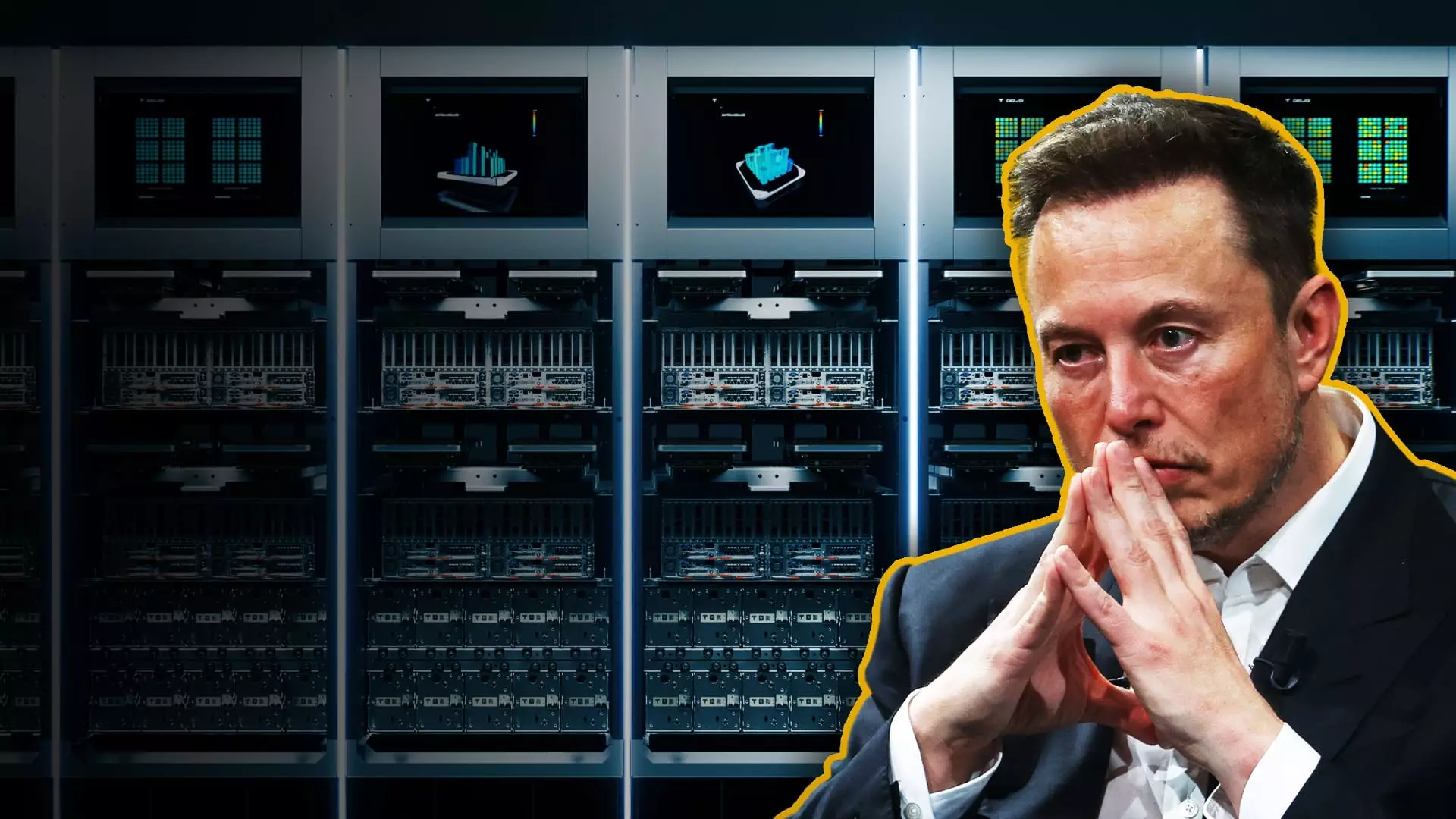Elon Musk, a name synonymous with innovation and disruption, is setting his sights on revolutionizing artificial intelligence (AI) through the development of advanced supercomputing technologies. As the driving force behind Tesla and his nascent AI venture, xAI, Musk believes that AI can fundamentally reshape his enterprises. His ambition transcends traditional automotive concerns, positioning Tesla as a leader in AI and robotics technology.
In January, Musk made a bold declaration on social media platform X, asserting that Tesla should be primarily viewed as an AI and robotics company rather than merely an automobile manufacturer. This pivotal shift in perception underscores his strategic direction: leveraging AI to enhance both the user experience and operational efficiency within Tesla’s fleet. Central to this vision is Tesla’s proprietary supercomputer, Dojo, a significant development that embodies Musk’s ambitions.
With an investment of approximately $500 million earmarked for its construction in Buffalo, New York, Dojo is designed to ingest and process vast quantities of video data harvested from Tesla vehicles equipped with multiple cameras. Each of the more than five million Teslas on the road today contributes a wealth of data, driving an extensive dataset that could greatly enhance the capabilities of Tesla’s driver assistance systems, Autopilot and Full Self-Driving (FSD). These features include advancements like automatic lane changes and parking, available to users via a monthly subscription.
The depth of data collection from Tesla vehicles positions the company uniquely in the race toward full vehicle autonomy. Steven Dickens, chief technology advisor at the Futurum Group, highlights the impressive volume of data generated by each car, which averages a staggering 10,000 miles of driving annually. This continuous video stream provides invaluable training input that could potentially elevate Tesla’s FSD capabilities. However, the reality of Tesla’s current offerings presents a more complex picture. Despite the advanced marketing of Autopilot and FSD, regulatory bodies have scrutinized the company for overstating the autonomy provided by these systems, emphasizing the necessity for active driver oversight.
Achieving true autonomous driving is a critical milestone for Tesla, as it significantly influences the company’s market valuation. Analysts suggest that the electric vehicle manufacturer’s future growth hinges on successfully launching robotaxi services—a vision Musk has passionately touted. In an increasingly competitive landscape, marked by advancements from rivals like Waymo, GM’s Cruise, and Amazon’s Zoox, Tesla must capitalize on its technological investments to maintain its edge.
The anticipated capabilities of Dojo extend beyond vehicles; they also encompass the development of Tesla’s humanoid robot, Optimus. Musk has expressed intentions to incorporate this innovative robot into production processes starting next year. The breadth of applications for Dojo highlights Musk’s expansive vision of AI’s role not only in transportation but also in manufacturing. His ambitious claim of a $10 billion investment in AI research and implementation within Tesla serves to underscore the company’s commitment to leading the charge in both fields.
Musk’s AI endeavors also include the establishment of xAI, launched in 2023 to create large language models and AI products as alternatives to existing technologies developed by industry giants like OpenAI, Microsoft, and Google. Following his departure from OpenAI in 2018, Musk has emerged as a notable critic of the organization’s AI trajectory and its implications for society. In a recent move, xAI announced the construction of a supercomputer in Memphis, Tennessee, aimed at facilitating the development of its own AI tools, illustrating Musk’s intent to directly challenge established AI paradigms.
Elon Musk’s vision of the future is underpinned by a relentless pursuit of AI and supercomputing technologies. With projects like Dojo and xAI, he not only challenges traditional automotive narratives but also redefines the parameters of technological prowess in contemporary society. As the race for true autonomy unfolds, the outcome of Musk’s endeavors may significantly shape the landscape of both AI and transportation, solidifying his footprint on the technological frontier. Whether through Tesla’s vehicles or the ambitious developments of xAI, Musk’s strategy embodies a comprehensive approach to harnessing AI’s potential for future innovation.

Leave a Reply